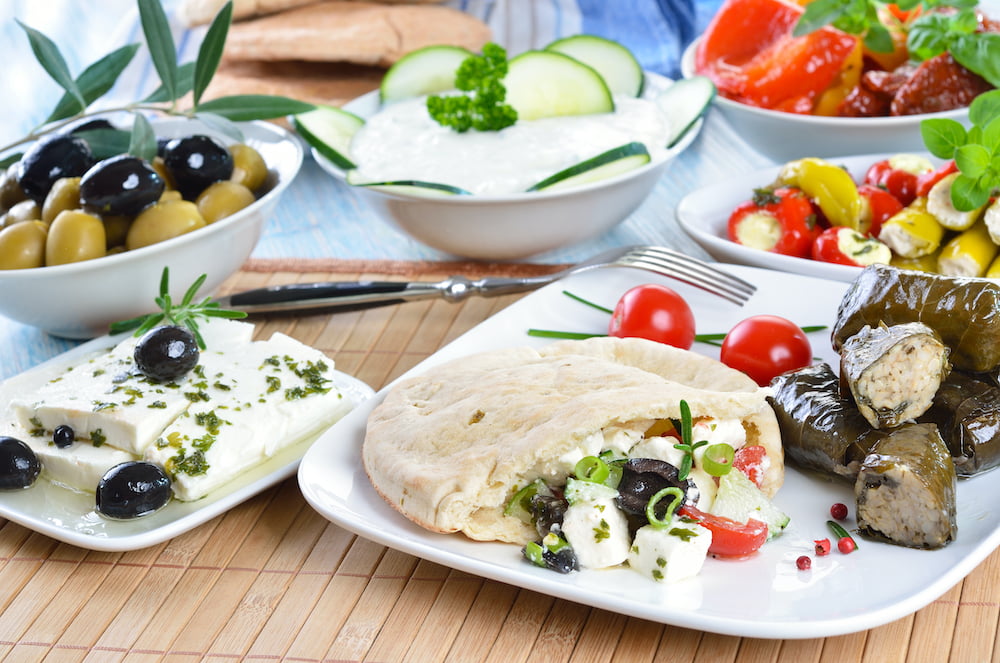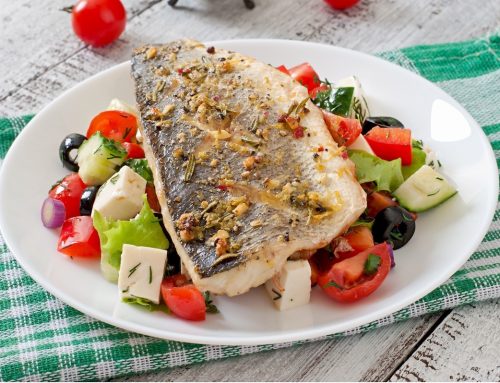10 Reasons to say ‘Yes’ to the Mediterranean diet in 2022.
If you’re looking for a delicious and easy way to make healthy eating part of your everyday life, then look no further than The Mediterranean Diet.
Forget hard to find ingredients and complicated recipes, eating the Mediterranean way couldn’t be easier and it is based upon using local, seasonal ingredients, that are full of colour and kind to our bodies, both physically and mentally.
What is the Mediterranean Diet?
The Mediterranean diet refers to the traditional healthy living habits of people from countries bordering the Mediterranean sea including Greece, Italy, France and Spain. The Mediterranean diet will vary by country and region but what they all have in common is that they are high in vegetables, fruits, legumes, nuts, beans, cereals, grains, fish and unsaturated fats such as olive oil. There is also usually a low intake of meat and dairy foods.
You will find both scientists and nutritionists championing the Mediterranean Diet, scientifically proven to provide these incredible health benefits:
- Supporting a healthy heart and lowering the risk of heart disease
- Preventing cognitive decline and alzheimers
- Providing a method of weight loss that is sustainable
- Preventing and/or managing type 2 diabetes
- Providing relief for people with Rheumatoid arthritis
- The ability to protect against certain types of cancer
- And the research shows that it may also help ease depression
And if this isn’t enough, here are 10 more reasons you’ll be sure to love the Mediterranean diet!
1. No calorie counting just simple swaps!
You won’t need a calculator for this meal plan. Instead of adding up numbers, you swap out bad fats for heart-healthy ones. Go for olive oil instead of butter. Try fish or poultry rather than red meat. Enjoy fresh fruit and skip sugary, fancy desserts.
Eat your fill of flavourful veggies and beans. Nuts are good, but stick to a handful a day. You can have whole-grain bread and wine, but in moderate amounts.
2. The Food really is FRESH
You won’t need to roam the frozen food aisle or resort to eating fast-food. The focus is on seasonal food that’s made in simple, mouth-watering ways. Build a delicious salad from spinach, cucumbers, and tomatoes. Add classic Greek ingredients like black olives and feta cheese for a quick light Greek salad recipe.
3. You can have bread
Look for a loaf made with whole grains. It’s got more protein and minerals and is generally healthier than the white flour kind. Try whole-grain pita bread dipped in olive oil, hummus, or tahini (a protein-rich paste made from ground sesame seeds).
4. Fat isn’t forbidden
You just need to look for the good kind. You’ll find it in nuts, olives, and olive oil. These fats (not the saturated and trans-fat hidden in processed foods) add flavour and help fight diseases from diabetes to cancer. Basic basil pesto is a tasty way to get some into your diet.
5. The menu is HUGE
The menu spans the whole of the Mediterranean, Greek and Italian cuisine to recipes from Spain, Turkey and Morocco. Choose foods that stick to the basics: light on red meat and whole-fat dairy, with lots of fresh fruits and veggies, olive oil, and whole grains.
6. Herbs are delicious
Bay leaves, coriander, rosemary, garlic, pepper, and cinnamon add so much flavour you won’t need to reach for the salt shaker. Some have health benefits, too. Coriander and rosemary, for example, have disease-fighting antioxidants and nutrients.
7. It’s easy to make
Greek meals are often small, easily assembled plates called ‘meze’. For your own serve-it-cold casual meal, you could put out plates of cheese, olives, nuts. Also check out these dishes on our Greek Kitchen Menu. Most contain heart-friendly ingredients including olive oil, beans, whole grains, and spices.
8. You can have wine
A glass with meals is common in many Mediterranean countries, where dining is often leisurely and social. Some studies suggest that for some people, up to one glass a day for women and two for men may be good for your heart. Red wine may be healthier than white. Check with your doctor to see if it’s a good idea for you.
9. You won’t be hungry
You’ll get a chance to eat rich-tasting foods like roasted sweet potatoes and hummus which your body digests more slowly so that you feel full for longer. Hunger’s not a problem when you can munch on nuts, olives, or bites of low-fat cheese when a craving strikes. Feta and halloumi are lower in fat than cheddar but still rich and tasty.
10. You can lose weight
You’d think it would take a miracle to drop some pounds if you eat nuts, cheese, and oils. But those Mediterranean basics (and the slower eating style) let you feel full and satisfied. And that helps you stick to a diet. Regular exercise is also an important part of the lifestyle.
Almost everything in this diet is good for your heart. Olive oil and nuts help lower “bad” cholesterol. Fruits, veggies, and beans help keep arteries clear. Fish helps lower triglycerides and blood pressure. Even a daily glass of wine may be good for your heart!
The same goodness that protects your heart is also good for your brain. You’re not eating bad fats and processed foods, which can cause inflammation. Instead, antioxidant-rich foods make this eating style a brain-friendly choice and is not so much a ‘diet’ but a healthy way of living.
If you’re looking for the family friendly place to experience the Mediterranean diet at its finest, then look no further than Kypseli, the new authentic Greek Taverna at No15 Stone Street in Cranbrook, Kent.






